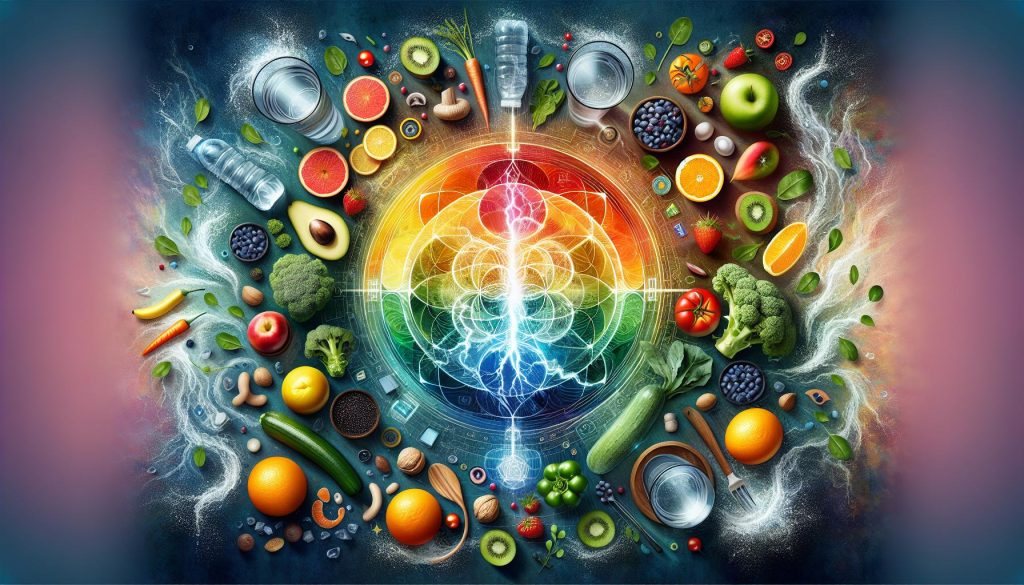
Exploring the Energy Equation of a Low Carb Diet
So, how exactly do you maintain energy on a low carb diet? It takes a bit of strategy, but with the right approach, it can be as simple as pie—minus the carbs, of course. Sustaining energy while reducing carbohydrate intake involves a delicately balanced dance of quality protein, healthy fats, and strategic carb use, along with a keen focus on hydration and added supplementary support. This intriguing navigation through the proverbial diet minefield will take us through the ins and outs of protein power, harnessing healthy fats, intelligent carb intake, hydration’s hold on health, and the added edge of supplements.
Protein Power: The Energy-Boosting Ace
By cutting back on carbs, your body will naturally switch its energy source from sugar to proteins and fats. This is where high-quality proteins swoop in to save the energy day. Aided by the amino acids within, these proteins function as your body’s building blocks, encouraging it to burn stored fats in your body for energy.
The Butcher, the Baker, and the Candlestick Maker of Proteins
Whether, it’s lean meat from your friendly neighborhood butcher, eggs from the hens in your backyard coops, or tasty tofu from your local store, including a rich variety of protein sources in your low carb diet is an excellent way to ensure maintained energy and balanced nutrition.
Harnessing Healthy Fats: The Sustained Energy Source
In the absence of carbohydrates, your body turns to fats as the next best source of energy. Healthy fats like avocados, salmon, almond butter, and olive oil act like slow-burning candles, steadily releasing energy and keeping you fueled longer, warding off bouts of fatigue and hunger.
Fat is Your Friend, Not Foe
Too often, fat is unfairly vilified and categorically dismissed from our menus. However, remember, not all fats are created equal. Monounsaturated and polyunsaturated fats – the good guys in the fat world – are vital for sustained energy, especially in a low carb diet.
Intelligent Carb Intake: Carbs Still Count
Whilst you’re reducing your carbohydrate intake, it’s crucial to note that not all carbs are off the table. Opt for complex carbohydrates like whole grains, fruits, and vegetables over simple carbs found in sugary snacks. These smart carbs break down slowly, offering your body a steady energy stream.
Carbs, Casually Catching a Bad Rap
When we converse about ‘carbs,’ we often hint at the “bad” ones – refined grains, sugary drinks, and the indulgent pastries we guiltily devour. However, let’s not forget about the “good” carbs rich in fiber and nutrients—an ideal choice for those seeking a balance in their low-carb diet.
Hydration’s Hold on Health: Water’s Wonders
Dehydration is a notorious energy thief. Ensuring adequate hydration can promote better nutrient absorption and lessen fatigue. And who says water can’t be fun? Infused waters, herbal teas, and low-carb drinks can keep you hydrated without adding those pesky carbs.
More than Just a Drop in the Bucket
Consider this: drinking water not only parches your thirst but also aids in metabolizing the proteins and fats that your low-carb diet has given priority status. So, drink up, for every drop counts!
Make a Positive Splash with Your Low Carb Lifestyle Change
There you have it! Remaining energized on a low carb diet is not as big a challenge as it seems. With smart protein choices, healthy fat reliance, strategic carb usage, and a solid focus on hydration, you can conquer the low carb diet - all while maintaining your energy levels.
Frequently Asked Questions
1. What good sources of protein can I have on a low carb diet?
Lean meats, fish, eggs, tofu, nuts, and seeds are great, wholesome sources of protein on a low carb diet.
2. Are fats necessary in a low carb diet?
Absolutely. Healthy fats act as a steady source of energy when carbs are limited. Make sure to choose monounsaturated and polyunsaturated fats for optimal health benefits.
3. Will carbohydrates completely vanish from my diet?
Not necessarily. You’ll focus more on “good” carbs found in whole grains, fruits, and vegetables instead of processed and sugary foods.
4. How does keeping hydrated help maintain energy?
Proper hydration aids in the metabolism of proteins and fats that your body uses for energy.
5. Can I rely only on diet to maintain energy in a low carb lifestyle?
While diet plays a significant role, regular exercise, quality sleep, and a stress-free mindset are equally important for maintaining energy.



